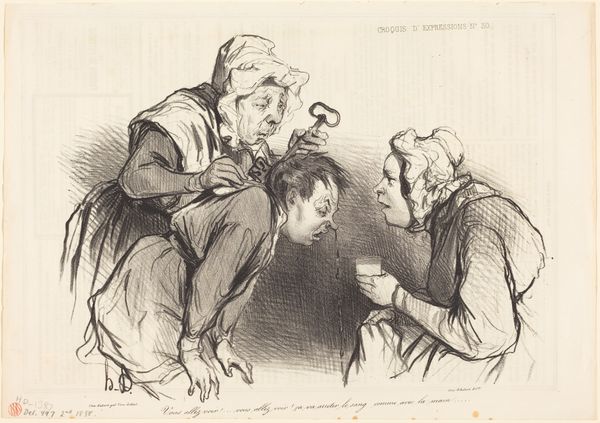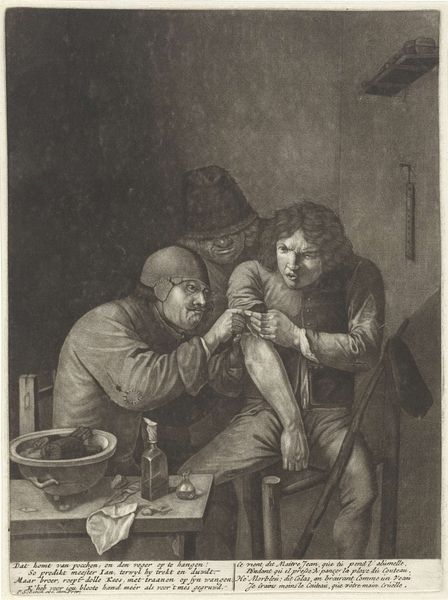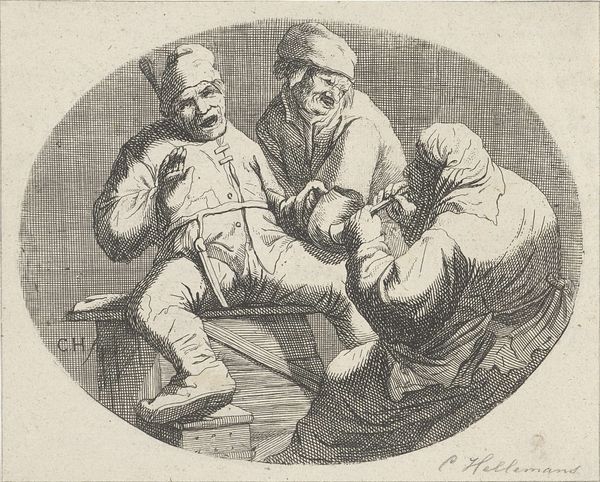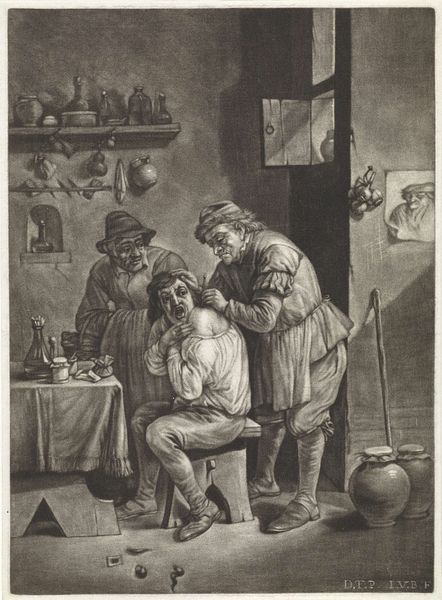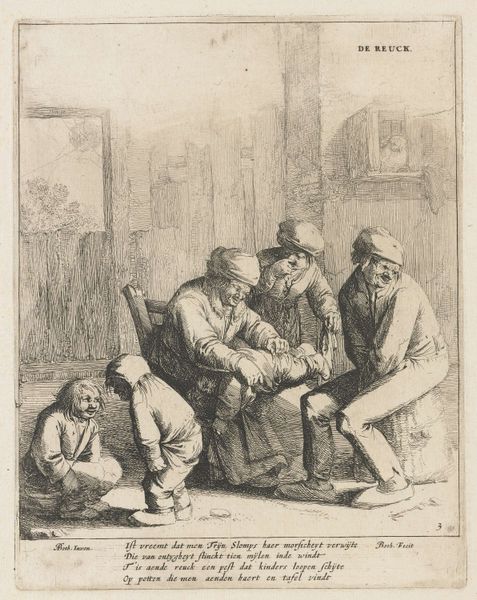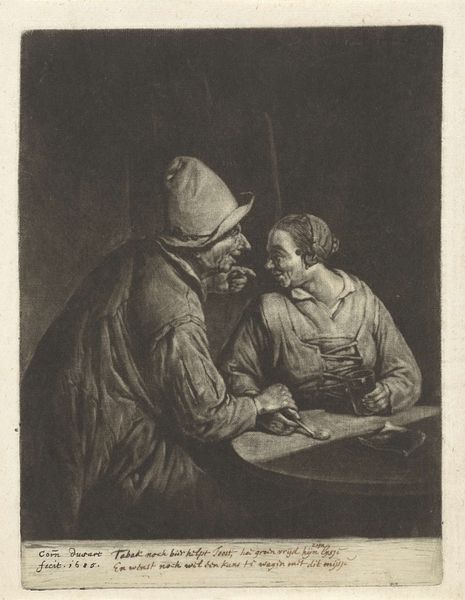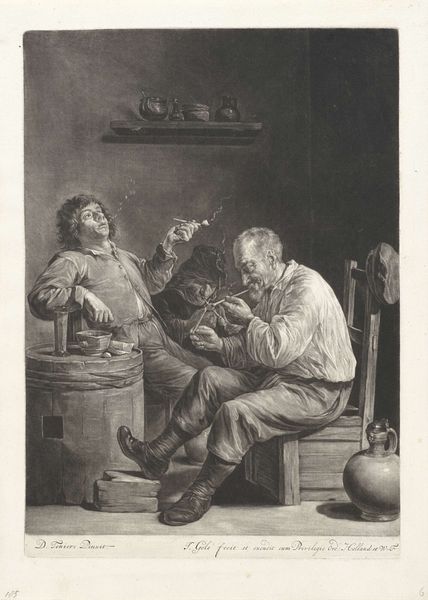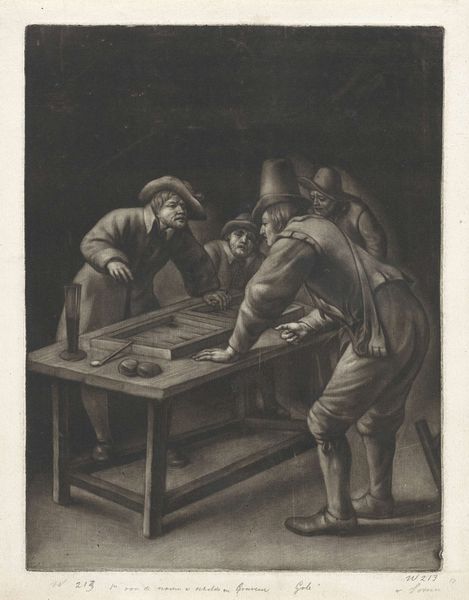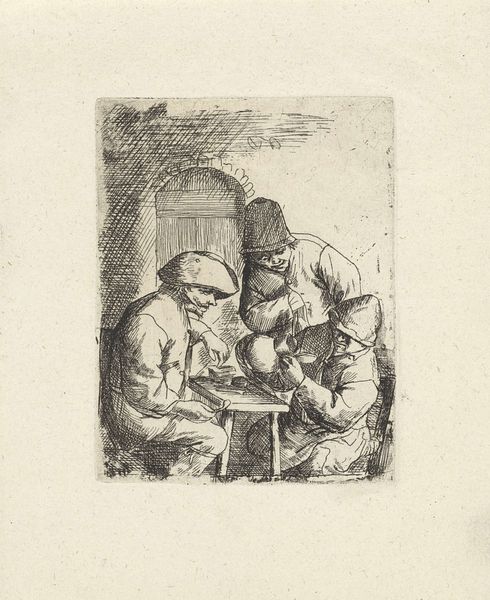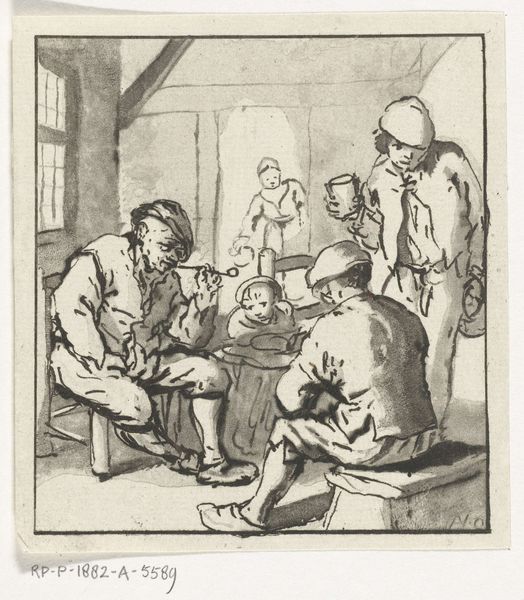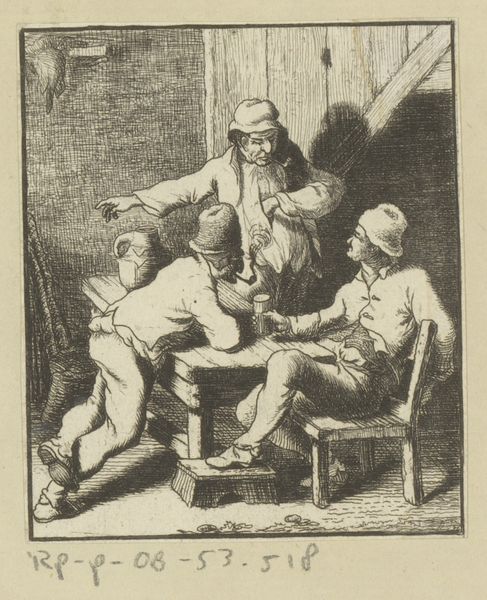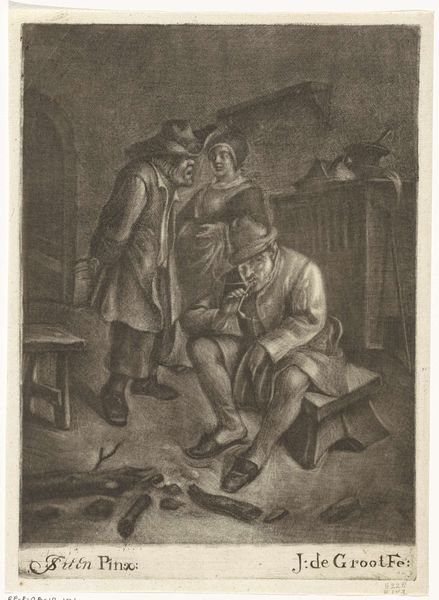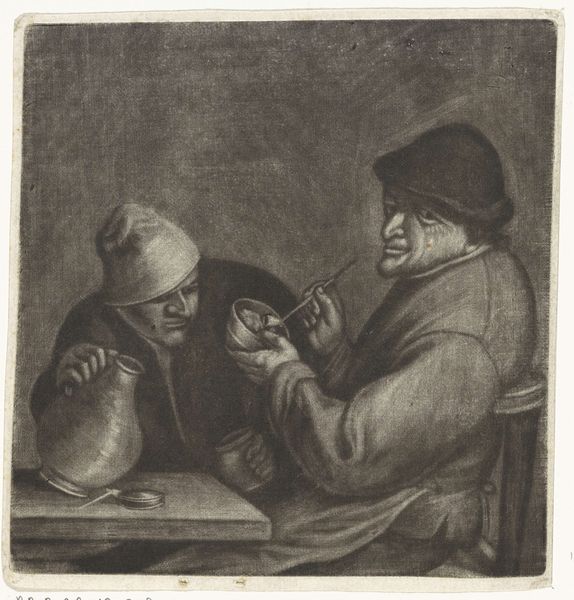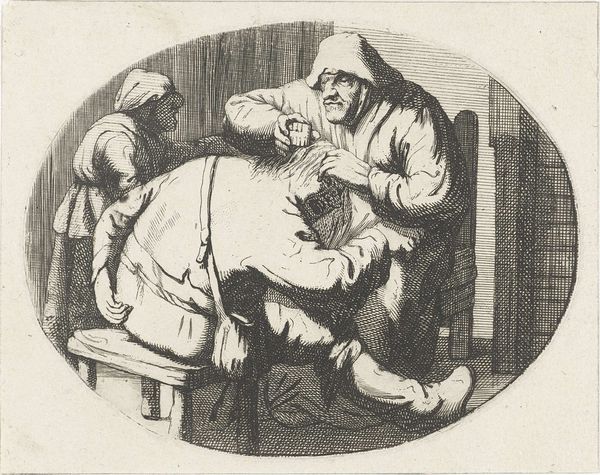
#
pencil drawn
#
toned paper
#
facial expression drawing
#
light pencil work
#
pencil sketch
#
charcoal drawing
#
personal sketchbook
#
portrait reference
#
pencil drawing
#
portrait drawing
Dimensions: height 185 mm, width 192 mm
Copyright: Rijks Museum: Open Domain
"Roker en drinker," or "Smoker and Drinker," was made by Jan de Later using etching, an intaglio printmaking technique. The image is made by covering a metal plate with a waxy, acid-resistant substance called "ground," onto which the artist scratches their design. When the plate is bathed in acid, the exposed lines are eaten away, and the plate is then inked and printed, transferring the image to paper. Etching allowed for more fluid lines and tonal variations than traditional engraving, and the nature of the medium influenced its accessibility, and popularity amongst artists. The relatively low cost of materials and ease of production meant that etchings could be widely distributed, helping democratize access to art. This small-scale genre scene reflects the growing availability of tobacco and alcohol, which fuelled social exchange, but also dependency. The amount of labor involved in the production process, and the distribution of the artwork, would have influenced its value, and the accessibility of the piece. The materials, processes, and social context are crucial in understanding the meaning of an artwork, and challenge distinctions between fine art and craft.
Comments
No comments
Be the first to comment and join the conversation on the ultimate creative platform.
